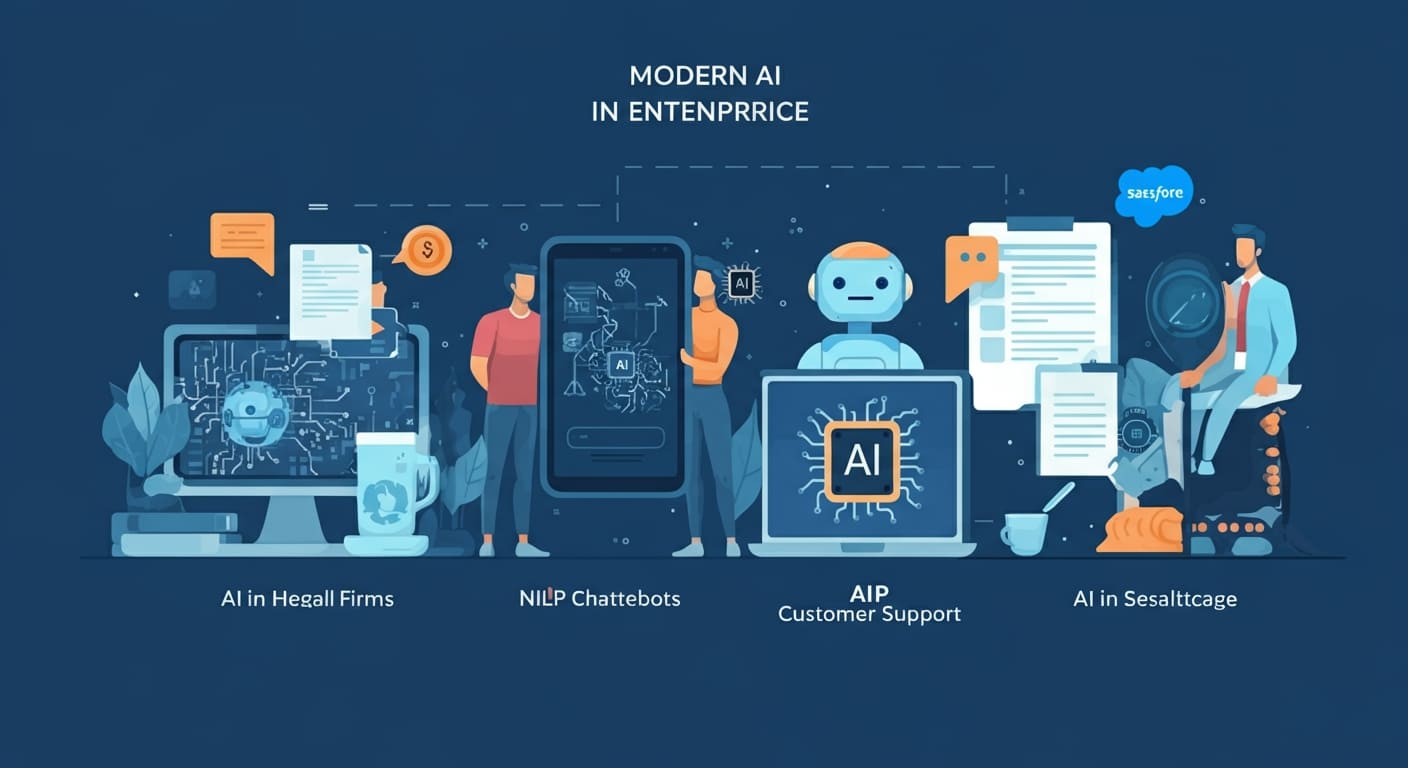Struggling to keep up with the immense volume of patient data and strict regulations? If managing medical records feels like a never-ending headache, you’re not alone. Custom EHR software development can transform your clinic or hospital by streamlining patient data management while ensuring HIPAA software compliance. Let’s dive into how building tailor-made EHR solutions can solve your biggest healthcare challenges.
Patient Data Management in EHR Software Development
Efficient patient data management is at the heart of every successful healthcare system. Yet, clinics and hospitals often face difficulties handling the sheer volume of patient records, test results, imaging files, and treatment histories — all while needing to keep data accessible to authorized personnel yet secure from breaches.
Challenges in Patient Data Management
Many healthcare providers encounter fragmented systems that hinder seamless data flow among departments. Paper records or standardized off-the-shelf EHR software often fail to meet the nuanced requirements of specific clinics or hospital specialties. This can lead to duplicated tests, medication errors, delayed treatments, and frustrated providers struggling with cumbersome interfaces.
Key Features of Custom EHR Systems
Custom EHR software development addresses these pain points by offering features designed specifically for your operational workflows:
- Data Integration: Seamless interoperability between imaging devices, lab systems, pharmacy databases, and billing software consolidates patient data into one unified platform. This breaks down silos and reduces the time providers spend searching for information.
- Real-Time Access: Custom systems can be developed to ensure that care teams access up-to-date patient data instantly — whether during rounds, emergency visits, or telehealth consultations.
- Error Reduction: By automating data entry workflows and incorporating clinical decision support tools, custom EHRs minimize human errors like incorrect medication inputs or overlooked allergies.
Benefits of Personalized Workflows
Beyond data handling, tailor-made EHR platforms enable clinics and hospitals to design workflows that reflect their unique clinical processes — from specialty-specific data fields to customized alerts and reporting dashboards. This personalization not only enhances provider satisfaction but also improves patient care quality by aligning technology with practice.
In 2025, as patient volumes increase and healthcare delivery becomes even more complex, having an EHR system that molds perfectly to your needs will be a clear competitive advantage.
HIPAA Software Compliance and Security Measures
Protecting patient privacy is non-negotiable, and HIPAA compliance is a legal imperative for any healthcare software. Custom EHR software development ensures your solution meets and exceeds these standards to safeguard sensitive health information.
Understanding HIPAA Software Requirements
HIPAA regulations mandate strict protocols for the confidentiality, integrity, and availability of electronic protected health information (ePHI). Software must include controls for:
- Access restrictions: Only authorized users can view or edit data.
- Data encryption: Patient information must be encrypted both in transit and at rest.
- Audit trails: Software should log access and modifications to records to deter and detect unauthorized activities.
- Backup and recovery: Systems must ensure data availability even during hardware or software failures.
Security Features in Custom EHR Solutions
Custom EHR software development integrates these essential security layers, tailored to the scale and complexity of your healthcare setting:
- Advanced Encryption Standards (AES-256): The gold standard for protecting sensitive data throughout the system.
- Multi-Factor Authentication: Reinforces user verification, preventing unauthorized access even if passwords are compromised.
- Role-Based Access Controls (RBAC): Defines granular permissions per user role — doctors, nurses, billing staff, and administrators only see what they are authorized to handle.
- Comprehensive Audit Trails: Transparent logs that monitor every action on patient records, supporting compliance audits and internal reviews.
Adapting to Evolving Privacy Regulations
As data privacy laws evolve worldwide, custom EHR software can be updated proactively to remain compliant. For example, incorporating automated alerts for new regulatory changes or modular encryption protocols allows your system to adapt without massive overhauls. This forward-thinking approach safeguards your clinic or hospital against compliance risks and costly penalties.
Advantages of Custom EHR Development Over Off-the-Shelf Solutions
Off-the-shelf EHR software may seem convenient but often falls short in addressing the complexity of diverse healthcare environments. Custom EHR software development offers significant advantages for clinics and hospitals seeking long-term success.
Flexibility and Scalability
Generic EHR platforms impose rigid workflows, forcing providers to change how they operate, which can hinder efficiency and user adoption. Conversely, custom solutions are designed with flexibility at their core:
- Easily modify workflows as clinical practices evolve.
- Scale capacity smoothly to accommodate growing patient loads or facility expansions.
- Integrate new modules like telehealth or AI analytics without disrupting daily operations.
Integration with Existing Healthcare Tech Stacks
Healthcare organizations employ myriad technologies—lab information systems, radiology PACS, billing software, to name a few. Custom EHR development ensures seamless integration with your current tools, preserving investments and streamlining information flow. Integration supports end-to-end patient data management, reducing duplication and error.
Cost-Benefit Considerations Over Time
While initial investment in custom development can be higher than purchasing a packaged EHR, the return on investment (ROI) is often more compelling over the years. Personalized systems reduce downtime, training costs, and workflow disruptions. They also avoid recurring licensing fees typical to commercial solutions. Maintenance and updates align precisely with your needs, avoiding unnecessary features that inflate expenses.
In 2025 and beyond, with healthcare digitization accelerating, choosing custom EHR development is an investment in agility and sustainable efficiency.
Emerging Trends and Advanced Tactics in EHR Development
The future of custom EHR software is shaped by cutting-edge technology and evolving healthcare demands. Staying ahead means adopting innovations that enhance functionality and user experience.
Incorporation of AI and Machine Learning
Artificial intelligence (AI) and machine learning (ML) augment EHR capabilities by enabling predictive analytics and clinical decision support. Custom EHR solutions can incorporate AI models that:
- Predict patient risks such as hospital readmissions or adverse drug reactions.
- Automate documentation through natural language processing (NLP), reducing physician burnout.
- Streamline coding and billing by intelligently suggesting appropriate codes.
These AI-powered features boost care quality and operational efficiency.
Mobile-Friendly EHR Interfaces and Telehealth Integration
With on-the-go providers and remote care becoming standard, custom EHR systems prioritize mobile-first designs that deliver full functionality through smartphones and tablets. This means:
- Physicians access patient charts, lab results, and imaging anytime, anywhere.
- Telehealth consultations integrate patient records directly, fostering continuity of care.
- Notifications and secure messaging improve communication across teams.
Cloud-Based Solutions for Seamless Updates and Collaboration
Cloud deployment remains a top trend for custom EHR development in 2025. Cloud hosting offers:
- Continuous software updates without downtime.
- Scalable storage to manage growing data volumes.
- Enhanced collaboration with centralized data accessible across facilities.
Cloud-based EHR systems also typically reduce IT infrastructure costs and support disaster recovery plans.
Conclusion
Custom EHR software development is a game-changer for clinics and hospitals looking to optimize patient data management while maintaining strict HIPAA software compliance. Tailor-made solutions smooth clinical workflows, secure sensitive information, and grow alongside your organization’s evolving needs. With WildnetEdge, you gain a trusted partner who understands the healthcare ecosystem and delivers tailored, secure, and scalable EHR solutions that fit your exact needs. Ready to revolutionize your data management? Partner with WildnetEdge and take the first step toward truly custom healthcare software.
FAQs
Q1: What is custom EHR software development and why is it important for patient data management?
Custom EHR software development involves building tailored electronic health record systems designed to meet the specific workflows and data handling needs of clinics and hospitals, improving accuracy and accessibility of patient data.
Q2: How does custom EHR software ensure HIPAA compliance?
Custom EHR software integrates built-in security features such as encryption, role-based access, and audit trails, aligning with HIPAA regulations to protect sensitive patient information.
Q3: What are the benefits of custom EHR systems compared to off-the-shelf solutions?
Custom EHR systems offer greater flexibility, better integration with existing tools, and scalability, enabling healthcare providers to adapt software precisely to their operational needs.
Q4: Can custom EHR software support telehealth and mobile access?
Yes, modern custom EHR solutions frequently include mobile-friendly interfaces and telehealth features to support remote patient care and improve provider accessibility.
Q5: How does WildnetEdge support clinics and hospitals in EHR software development?
WildnetEdge offers expert custom EHR development services focused on secure, compliant, and scalable solutions tailored to healthcare providers’ unique requirements.

Managing Director (MD) Nitin Agarwal is a veteran in custom software development. He is fascinated by how software can turn ideas into real-world solutions. With extensive experience designing scalable and efficient systems, he focuses on creating software that delivers tangible results. Nitin enjoys exploring emerging technologies, taking on challenging projects, and mentoring teams to bring ideas to life. He believes that good software is not just about code; it’s about understanding problems and creating value for users. For him, great software combines thoughtful design, clever engineering, and a clear understanding of the problems it’s meant to solve.
 sales@wildnetedge.com
sales@wildnetedge.com +1 (212) 901 8616
+1 (212) 901 8616 +1 (437) 225-7733
+1 (437) 225-7733















 ChatGPT Development & Enablement
ChatGPT Development & Enablement Hire AI & ChatGPT Experts
Hire AI & ChatGPT Experts ChatGPT Apps by Industry
ChatGPT Apps by Industry ChatGPT Blog
ChatGPT Blog ChatGPT Case study
ChatGPT Case study AI Development Services
AI Development Services Industry AI Solutions
Industry AI Solutions AI Consulting & Research
AI Consulting & Research Automation & Intelligence
Automation & Intelligence













